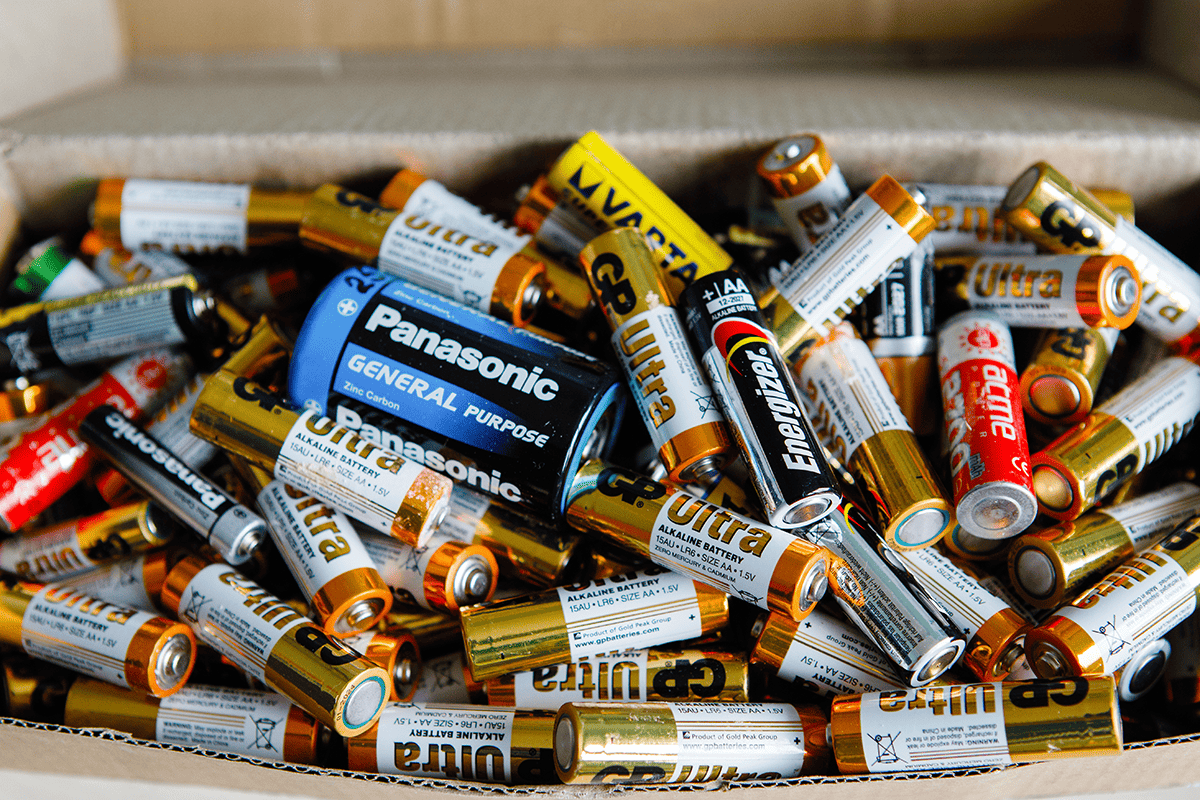As an emergency electrician serving Epsom, I frequently get asked about the proper disposal of old batteries. Most people know they shouldn’t just throw them in the bin, but they’re often unsure about what to do instead. Batteries contain hazardous materials that can be harmful to the environment if not disposed of properly. Fortunately, there are many responsible ways to recycle batteries in Epsom, including local recycling points and supermarket drop-off locations.
In this guide, I’ll explain why battery recycling is important, the different types of batteries and their disposal methods, and where you can safely drop off your used batteries in Epsom.
Why Proper Battery Disposal is Crucial
Batteries contain toxic metals and chemicals, including lead, mercury, cadmium, and lithium. If thrown into household waste, these substances can leach into the soil and waterways, causing serious environmental damage. Additionally, improperly disposed of batteries can be a fire hazard, especially lithium-ion batteries found in mobile phones and laptops.
Here are some key reasons why proper battery disposal is essential:
- Prevents Pollution: Batteries that end up in landfills can leak harmful chemicals, polluting soil and groundwater.
- Reduces Fire Risks: Discarded batteries, especially lithium-ion types, can overheat and ignite, posing a fire hazard.
- Conserves Resources: Many battery components, such as lead, nickel, and lithium, can be reused, reducing the need for mining new materials.
- Complies with UK Regulations: The UK government has strict battery recycling laws, and failing to dispose of batteries correctly can lead to fines for businesses.
Types of Batteries and Their Disposal Methods
Before recycling, it’s important to identify the type of battery you are disposing of. Different types require different handling methods:
Alkaline Batteries (AA, AAA, C, D, 9V)
These are the most common household batteries used in remote controls, toys, and torches. Most modern alkaline batteries are free of toxic heavy metals, but they should still be recycled whenever possible.
Lithium-Ion (Li-ion) Batteries
These rechargeable batteries are found in mobile phones, laptops, power tools, and e-cigarettes. They are highly flammable if damaged or punctured and should never be thrown in the bin.
Lead-Acid Batteries (Car Batteries)
Lead-acid batteries are found in cars, motorbikes, and uninterruptible power supplies (UPS). They contain highly toxic lead and sulphuric acid and must be disposed of carefully.
Nickel-Cadmium (Ni-Cd) and Nickel-Metal Hydride (Ni-MH) Batteries
These rechargeable batteries are used in cordless phones, cameras, and older power tools. Nickel-cadmium batteries contain cadmium, which is highly toxic.
Where to Recycle Batteries in Epsom
Epsom Community Recycling Centre
Address: Blenheim Road, Epsom, KT19 9DL
Accepted Items: Household batteries, lead-acid car batteries, rechargeable batteries
Supermarkets with Battery Recycling Bins
- Sainsbury’s Epsom (Kiln Lane Retail Park) – Offers battery recycling bins at the entrance.
- Tesco Express (Epsom High Street) – Provides a drop-off point for used batteries.
- Co-op (Upper High Street and Stoneleigh Broadway) – Both stores have battery collection bins as part of their sustainability initiative.
Ryman Stationery (Epsom High Street)
This store accepts old household batteries for recycling. If you work in an office, this can be a convenient option for dropping off used batteries from workplace devices.
Epsom Methodist Church (Eco Church Recycling Scheme)
The church runs a community recycling scheme that accepts used batteries, among other recyclable materials. This is a great local option supporting sustainability.
How to Store Old Batteries Before Disposal
- Store them in a cool, dry place away from direct sunlight and heat sources.
- Keep different battery types separate to avoid chemical reactions.
- Tape over the terminals of lithium-ion and 9V batteries to prevent short circuits.
- Use a non-metallic container (such as a cardboard box) to store them safely.
Do Your Part for a Greener Epsom
Battery recycling is a simple but impactful way to reduce environmental harm and promote sustainability. By using the convenient recycling locations in Epsom, you can ensure that hazardous materials are disposed of safely, protecting both nature and the community.
Need an Emergency Electrician in Epsom?
While we’re on the subject of electrical safety, if you ever experience an electrical emergency in your home, I provide 24/7 emergency electrician services in Epsom. Whether it’s a power outage, faulty wiring, or a circuit overload, I’m here to help.
For more information about my emergency electrician services, visit my web page: 24/7 Emergency Electrician in Epsom
Stay safe, recycle responsibly, and don’t hesitate to call if you need expert electrical assistance!

